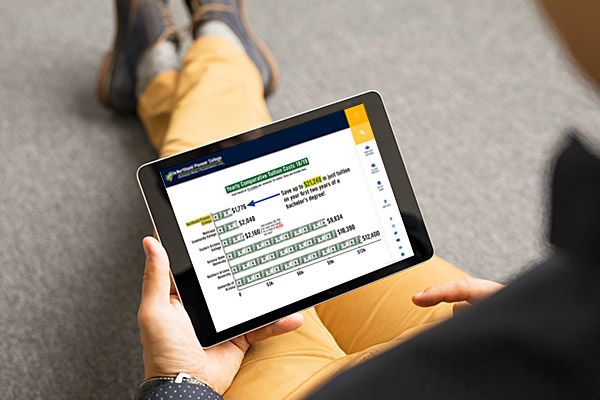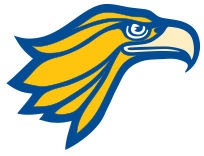Grant Seeking and Management
Procedure 2106
|
Section: 2106 |
Last Review Date: 11/24 |
|
Responsible Area: Development Office |
Effective Date: 12/06/24 |
|
Policy/policies the procedure is based on: 1240 (As revised) |
Revision History: 11/24 |
1.0 Scope:
This applies to all employees who are interested in seeking discretionary, external grant funding (including grants externally awarded through an intergovernmental agreement) to support college projects. Does not apply to formula (non-discretionary) grants, such as the Perkins Grant.
2.0 Purpose:
This procedure describes a standardized institutional process for strategic grant-seeking and post-award management.
3.0 Definitions:
3.1 Development Director - The individual who works closely with the Project Champion, Project Director (who may be the Project Champion), Grant Writer, Grant Accountant, and Evaluator (and, if applicable, Northland Pioneer College Friends and Family [NPCFF]) to coordinate 1) the identification of funding source(s); 2) development and submission of grant proposals; 3) post-grant award activities for NPC. The Development Office is the central repository for all grant proposals and reports. The Development Director may also serve as the Grant Writer for any proposed project. To submit grant proposals via grants.gov, the Development Director serves as NPC’s Authorized Organizational Representative (AOR).
3.2 Discretionary grant - A grant in which funds are awarded on the basis of a competitive process. The funder reviews applications through a formal review process, which gives them the discretion to determine which applications best address the program requirements and are, therefore, most worthy of the funding.
3.3 Evaluator – An impartial person who analyzes the data collected about how a grant-funded project meets its objectives and goals. The Evaluator also interprets the data for laypersons and professionals from a neutral, objective perspective and may assist the Project Director and Development Director in preparing reports for the Grant Funder. The scope of work for the evaluator may depend on the grant requirements, and the Evaluator may be a college employee or an external consultant, depending on the grant requirements.
3.4 Formula grant – Formula grant programs are noncompetitive awards based on a predetermined formula.
3.5 Grant – The funds awarded to a successful grant proposal.
3.6 Grant project – The project described in the grant proposal.
3.7 Grant proposal - A clear, direct document written to a particular grant funder, describing a grant project, and its intended outcomes, with the purpose of persuading the funder to provide support in the form of a grant. This is also known as a grant application.
3.8 Grant Writer – Any individual who crafts a grant proposal to secure funding for NPC, based on the needs, objectives, and directives of the Project Champion. In some instances, the Project Champion may be the Grant Writer.
3.9 Grantee/Awardee – The organization that receives the grant award, based on their proposal.
3.10 Grantor/Funder - The individual or organization who provides the grant award. Funders may include but are not limited to, federal or state governments, philanthropic organizations, or public/private foundations.
3.11 Grant Accountant – The individual in the Business Office who monitors expenditures against budget and compliance with funding guidelines, and who keeps track of any match, whether dollar-for-dollar or in-kind. The Grant Accountant works closely with the Project Director and the Development Director to monitor the grant budget and prepare all financial reports. When submitting grant proposals via grants.gov, the Grant Accountant is listed as NPC’s Business Point of Contact (Business POC).
3.12 Indirect (Administrative) Cost - Indirect costs are general business and administration expenses (overhead costs) that are not directly linked to the proposed grant activities. As of the writing of this procedure, NPC does not have a negotiated indirect cost rate for federal grants. Other grant programs vary in the amount of indirect that can be requested in the budget, so the program solicitation should be consulted.
3.13 In-kind Match – The contribution by the awardee to the grant project. May include the value of any real property, equipment, goods, or services for a grant project that would have been eligible costs under the grant program if the awardee was required to pay for such costs with grant funds.
3.14 Logic Model – A graphic illustration of the relationship between a project’s resources, activities, and intended effects. Specifically, a logic model is used as a visual way to illustrate the resources or inputs required to implement a project, the activities/strategies to be implemented, outputs of a project, and the desired project outcomes/goals (short-term and long-term).
3.15 Match – The amount of the budget the grantee is required to contribute to achieving the purposes of the award. A match can be dollar-for-dollar, or in-kind. Not all grants have a matching requirement. The required match percentage, sources of the match, and other requirements vary from program to program, so the program solicitation should be consulted.
3.16 Principal Investigator – This individual is somewhat synonymous with the Project Director, but specific to scientific or research-based grants, including those federal grants funded by the National Science Foundation. The Principal Investigator is the individual responsible for overseeing all project activities that lead to the achievement of the goals addressed in the grant, including conducting research and evaluation of the research, and the financial components. Principal Investigator and Project Director are nearly synonymous, with the term Principal Investigator being specific to scientific or research-based grants, including those federal grants funded by the National Science Foundation.
3.17 Program Solicitation - The document that includes the funder’s instructions for preparing and submitting the grant proposal.
3.18 Project Champion – The college employee or team who is seeking the grant, and designs the project for the grant. The Project Champion works closely with the Grant Writer, Evaluator, Grant Accountant, and Development Director. Depending on the size of the grant project, the Project Champion may also become the Project Director when the grant is awarded. The Project Champion may also serve as the Grant Writer.
3.19 Project Director – The individual who is responsible for overseeing all project activities that lead to the achievement of the goals addressed in the grant, including serving as budget manager for oversight of the financial components. The Project Director collaborates with all college departments involved with grant activities, including the Grant Accountant, regularly during the implementation phase of the funded project.
3.20 Supplanting - Supplanting occurs when an awardee reduces funds previously allocated or appropriated by NPC for an activity, specifically because grant funds are available (or expected to be available) to fund the same activity. Any reduction in non-grant resources allocated for the same time period and purpose as the grant award will be subject to careful review.
4.0 Procedure
4.1 Critical Considerations before Seeking External Funding Resources
a. Any NPC employee may propose to seek grant funding from a private, state, or federal source to fund a project that serves the college. Once the employee proposes to seek grant funding for their project, they become the Project Champion.
b. Before the Project Champion begins to draft or approaches a grant writer for help with drafting the proposal, it is the Project Champion’s responsibility to work with his/her supervisor and relevant department(s) to discuss or identify major aspects of the project, including the following:
- A clearly stated problem or need statement
- Extent to which the project is aligned with the college’s strategic directions
- Major components of the project (could be illustrated by a logic model)
- Tentative implementation timeline
- Data needs and Evaluation
- Project sustainability considerations
c. The Project Champion should be aware of the approximate amount of time that is needed to go through all the necessary processes described in this procedure. For grants large in scope, the Project Champion should allow at least 60 days to work with various departments to develop the grant proposal before its final submission. If the Project Champion intends to respond to a solicitation, they need to be aware that there may not be time to work through the required processes. The intent of this process is to protect the college from hastening into a grant project it cannot support, wherein the grant becomes a liability, rather than a benefit.
4.2 Identify Potential Funding Sources
a. If a Project Champion knows a specific funding agency or opportunity, they can proceed to follow the initiation process (see 4.5) to submit an abstract and the checklist to the Development Director who will forward the documents to the President’s Cabinet. The Project Champion should allow enough time for the President’s Cabinet to make a decision, and for the involved departments to collaborate on the proposal drafting process.
b. If the Project Champion does not know any funding agency that would finance the project, they can request assistance from the Development Director to look for possible external funding sources. The outcome of such a request (i.e., a funding source is identified) still needs to follow the initiation process to seek initial proposal drafting approval from the President’s Cabinet.
4.3 Ensure Data, Evaluation, and Sustainability Considerations Early in the Process
a. The Project Champion must also consult with the Office of Institutional Effectiveness as early as possible during the grant writing period to explore specific funding requirements about data needs, logic model development, and evaluation design. This step is to ensure that the Office of Institutional Effectiveness has adequate time to meet any data needs for the proposed project.
b. If the funding agency requires an external evaluator for the proposed project, the Project Champion would facilitate preliminary discussion between a potential evaluator and the Office of Institutional Effectiveness to estimate data needs and collection protocol.
4.4 Assignment or Determination of Project Director
a. If a Project Director is to be hired with grant funds, an Interim Project Director from within the college will be appointed by the Cabinet-level administrator of the division under which the grant project is aligned. The Project Champion may be the Project Director or may be assigned to serve as the Interim Project Director if an external director will be hired. The assignment of the Interim Project Director must be determined prior to proposal submission.
4.5 Initiating the Grant-Seeking Process
a. The Project Champion must seek initial approval to develop and submit a grant proposal by completing the Grant Seeking Initial Approval Checklist and a one-page, single-spaced abstract.
b. The Project Champion will send the Grant Seeking Initial Approval Checklist and the abstract to their supervisor for sign-off.
c. If the Grant Seeking Initial Approval Checklist and abstract are approved by the supervisor, the Project Champion must email the checklist and abstract to the Development Director who will forward the document to the President’s Cabinet. The Champion’s email must copy all department heads involved in the project.
4.6 Approval to Proceed with Grant Proposal Development
a. Upon receiving the Grant Seeking Initial Approval Checklist and abstract, the President’s Cabinet will review and respond within no more than two weeks. They may give approval, request additional information, or provide suggestions for revision.
b. If a grant submission deadline is imminent (i.e., less than 60 days as mentioned in 4.1.c.), the Project Champion may request an expedited review and approval by the President’s Cabinet, but the expedited review/approval is not guaranteed. For example, if match (including dollar-for-dollar, in-kind, or a combination of these) exceeds the President’s allowable spending capacity, approval from the college’s District Governing Board will be required.
4.7 Actual Grant Proposal Development Process
a. Upon receiving President’s Cabinet approval to proceed, the Project Champion will follow the initial timeline and work with the Development Director, Grant Writer, Office of Institutional Effectiveness, Business Office, Human Resources Office, and any other involved departments to develop a complete proposal. The Project Champion may serve as the Grant Writer.
b. The Project Champion is responsible for reviewing all draft versions of the proposal to ensure the fidelity of the original project idea within the confines of the requirements set forth by the funding agency and to assure the Grant Writer is accurately conveying the Project Champion’s project to the funding agency.
c. The Project Champion will work with the Grant Writer to prepare a final draft of the proposal for the President to review and approve. When requested, the Project Champion may be responsible for presenting an overview of the proposal to the President’s Cabinet. Depending on the submission process of the funding agency, the Project Champion may request assistance from the Development Director to submit the final proposal.
d. Final copies of all proposals will be kept in the following locations: Development Office, Office of Institutional Effectiveness, Office of Grant Accountant, Office of the President, and office of the vice-president under whose division the project falls.
4.8 Grants Requiring that the Awardee be a 501(c)(3) Organization
a. Some Grantors/Funders, particularly foundations and other private organizations, will fund awards only to 501(c)(3) organizations. In these cases, NPC cannot submit grant proposals to them.
b. NPC Friends and Family is a 501(c)(3) organization and may opt to apply for or accept a grant on behalf of the college if the proposed project is aligned with NPCFF’s mission, and it is within NPCFF’s capacity to do so.
4.9 General Guidelines for Post-Award Grant Management
a. Upon receipt of a grant award notice, the Development Director will notify the President’s Cabinet and Project Director, so the Project Director can begin coordinating post-award grant management activities. If a Project Director is to be hired with grant funds, President will appoint an interim director until the director is hired.
b. The Project Director will go to the Development Office SharePoint site, under Post Award Resources, to access and follow the processes that are presented there, beginning with the Post Grant Award Task List.
c. To avoid potential non-compliance with grants, the Project Director is responsible for the coordination and completion of all reporting related to the grant and will upload a copy of all internal and external reports related to the grant project to the designated grant folder on the Development Office SharePoint site to facilitate centralized record keeping and communication.




